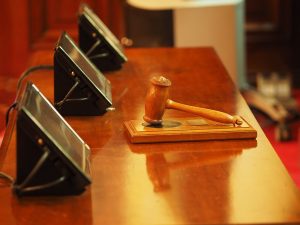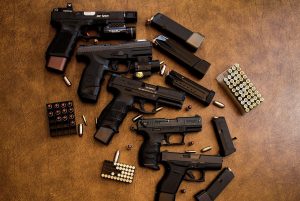The Second Amendment of the Constitution is the legal basis of firearm possession in the United States. Gun control is one of the most sensitive issues in American politics. With each mass shooting – explained by the fact that more victims were killed – an antagonism develops involving both sides of the gun control argument. But how are guns controlled? If you’re a first time handgun buyer, here’s what you need to know.
Who Is Restricted From Buying or Owning Guns?
Fugitives, people considered a danger to society, and patients involuntarily committed to a mental institution are among those who cannot buy guns. People with prior felony convictions that carry a prison sentence of more than one year, as well as misdemeanors that carry sentences of several decades, are also prohibited from purchasing guns. Federal law also monitored the selling of guns to people who have been guilty of possessing or using controlled substances, like marijuana, which is legalized in many U.S. states but remains illegal under the law. Gun store owners must obtain licenses to operate from the ATF. Other gun restrictions also include people who have restraining orders by courts for preventing harassment, stalking, or threatening; people who have renounced citizenship; dishonorably discharged military personnel; unauthorized migrants; and people temporarily visiting the US on nonimmigrant visas, including tourists.
Does the Federal or State Government Regulate Guns?
 The legal basis for the “right of the people to keep and bear arms” is based on the Second Amendment. While state and local governments regulate whether taxpayers can carry firearms on people, for example, laws governing who can obtain or own guns are enacted at the federal level. The ATF (Bureau of Alcohol, Tobacco, Firearms, and Explosives), a division under the Department of Justice, administers the GCA and regulates the standards for issuing licenses to gun vendors.
The legal basis for the “right of the people to keep and bear arms” is based on the Second Amendment. While state and local governments regulate whether taxpayers can carry firearms on people, for example, laws governing who can obtain or own guns are enacted at the federal level. The ATF (Bureau of Alcohol, Tobacco, Firearms, and Explosives), a division under the Department of Justice, administers the GCA and regulates the standards for issuing licenses to gun vendors.
Firearms such as shotguns, rifles, machine guns, firearm mufflers, and silencers are regulated under the National Firearms Act of 1934. The purchase of semi-automatic weapons is legal in most states, as are automatic weapons made before 1986.
Who Can Sell Firearms?
 Like gun owners, sellers interested in obtaining an FFL (Federal Firearms License) (FFL) should be at least 21 years of age. They must have prerequisites to conduct the business and must notify a local law enforcement officer at the time they submit their applications to the federal agency that regulates guns. Like gun owners, they must meet the same standards regarding their criminal record and mental state.
Like gun owners, sellers interested in obtaining an FFL (Federal Firearms License) (FFL) should be at least 21 years of age. They must have prerequisites to conduct the business and must notify a local law enforcement officer at the time they submit their applications to the federal agency that regulates guns. Like gun owners, they must meet the same standards regarding their criminal record and mental state.
The license fee costs $200 ($170) to find an initial three-year period and $90 for each three-year renewal. Selling online is also covered under these regulations. While the purchase can be paid for online, the gun itself must be sent to a registered FFL owner, who then performs the important background check before releasing the gun to the owner. On the other hand, the laws are uncertain about what constitutes the sale of firearms for profit. Anyone can sell firearms without a license if their purpose is not to make a living through repeated and routine revenue.…
